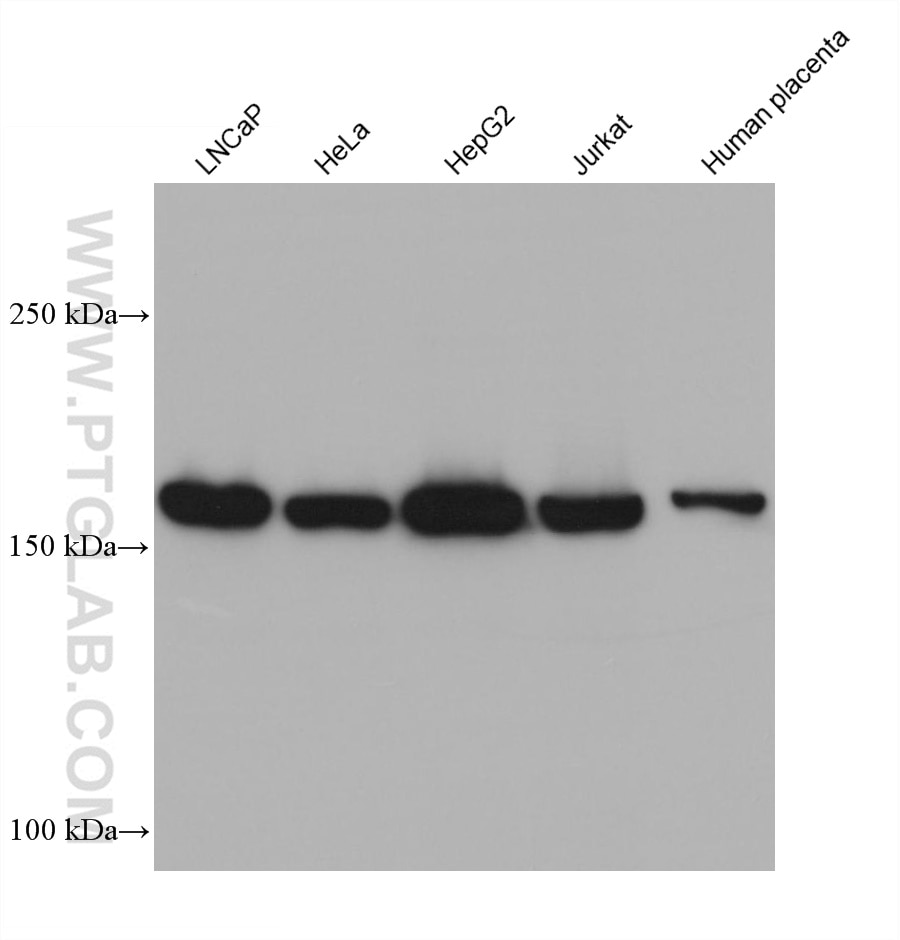Validation Data Gallery
Tested Applications
| Positive WB detected in | LNCaP cells, HeLa cells, HepG2 cells, Jurkat cells, human placenta tissue |
Recommended dilution
| Application | Dilution |
|---|---|
| Western Blot (WB) | WB : 1:5000-1:50000 |
| It is recommended that this reagent should be titrated in each testing system to obtain optimal results. | |
| Sample-dependent, Check data in validation data gallery. | |
Product Information
68462-1-Ig targets UGCGL1 in WB, ELISA applications and shows reactivity with Human samples.
| Tested Reactivity | Human |
| Host / Isotype | Mouse / IgG2b |
| Class | Monoclonal |
| Type | Antibody |
| Immunogen | UGCGL1 fusion protein Ag5940 相同性解析による交差性が予測される生物種 |
| Full Name | UDP-glucose ceramide glucosyltransferase-like 1 |
| Calculated molecular weight | 1531 aa, 175 kDa |
| Observed molecular weight | 170 kDa |
| GenBank accession number | BC041098 |
| Gene Symbol | UGCGL1 |
| Gene ID (NCBI) | 56886 |
| RRID | AB_3670381 |
| Conjugate | Unconjugated |
| Form | Liquid |
| Purification Method | Protein A purification |
| UNIPROT ID | Q9NYU2 |
| Storage Buffer | PBS with 0.02% sodium azide and 50% glycerol{{ptg:BufferTemp}}7.3 |
| Storage Conditions | Store at -20°C. Stable for one year after shipment. Aliquoting is unnecessary for -20oC storage. |
Background Information
UDP-glucose:glycoprotein glucosyltransferase 1 (UGCGL1) is a central quality control gatekeeper in the mammalian endoplasmic reticulum (ER) and serves as a folding sensor in the calnexin/calreticulin glycoprotein quality control cycle (PMID: 28425917). UGCGL1 acts as a checkpoint in the quality control of the MHC class I antigen presentation pathway (PMID: 21383159). Western blot analysis detected UGCGL1at an apparent molecular mass of 170 kDa.
Protocols
| Product Specific Protocols | |
|---|---|
| WB protocol for UGCGL1 antibody 68462-1-Ig | Download protocol |
| Standard Protocols | |
|---|---|
| Click here to view our Standard Protocols |
